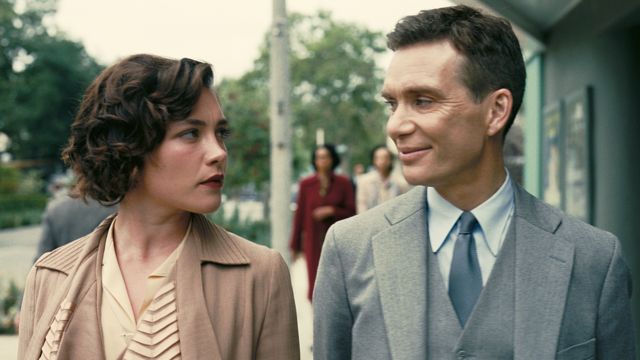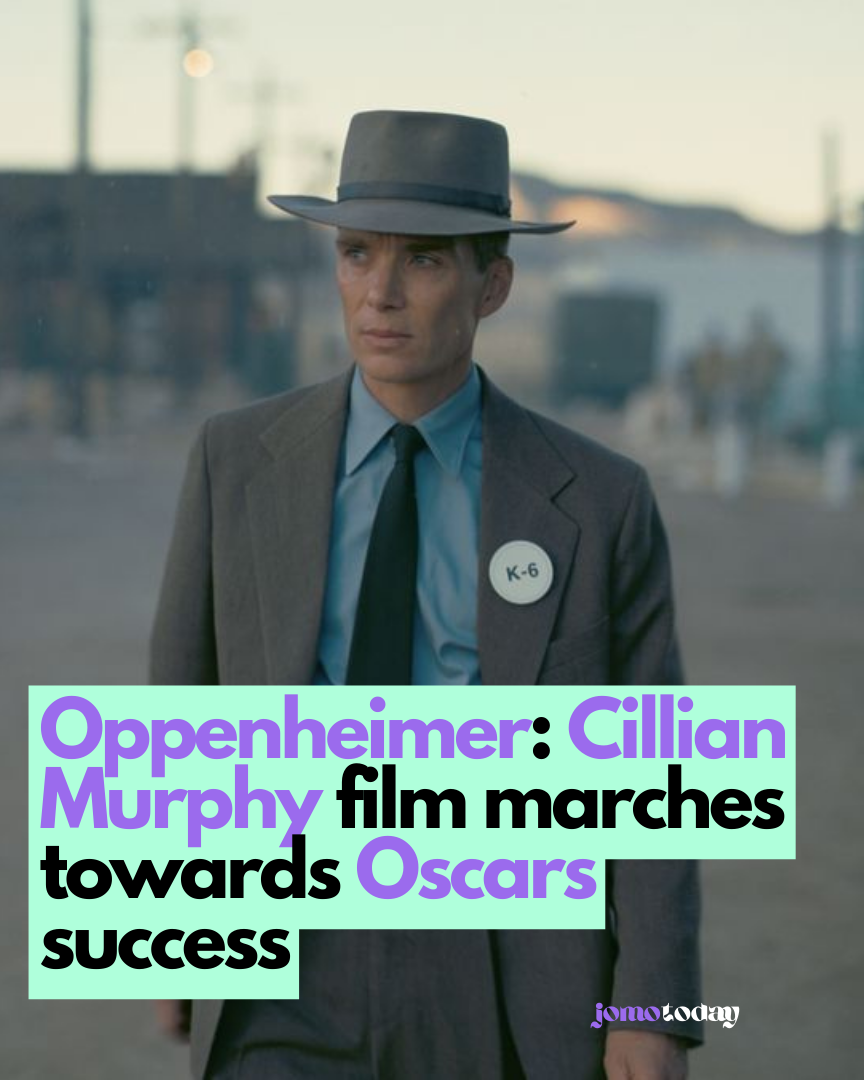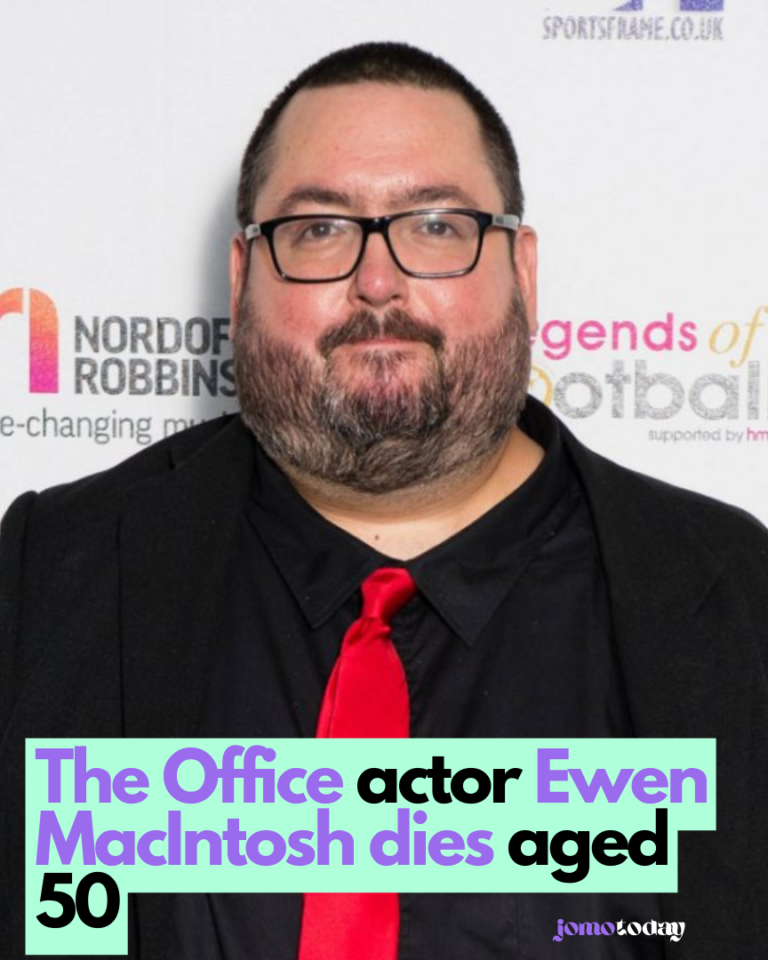Cillian Murphy’s film “Oppenheimer” gains momentum in the Oscars race, receiving a significant accolade at the Golden Globes, further boosting Christopher Nolan’s awards campaign.

Christopher Nolan’s film Oppenheimer got another boost in its awards campaign at last week’s Golden Globes.
When Robert Downey Jr. accepted his Golden Globe for best supporting actor last week for his role in Oppenheimer, he humorously reflected on the film’s unexpected success. “A sweeping narrative about the ethical dilemma of nuclear weapons grossing $1 billion?” he quipped, acknowledging that the movie didn’t seem initially appealing on paper.
Despite the initial skepticism, Universal Pictures fully backed Christopher Nolan, the cast, and the crew, helping them create a masterpiece. Oppenheimer, Nolan’s three-hour epic exploring the life of J. Robert Oppenheimer, the father of the atomic bomb, is now poised to dominate the awards season, just as it did at the 2023 summer box office.
The film has secured four Screen Actors Guild nominations, and it is anticipated to be prominently featured when the Bafta Film Awards reveal their shortlists this week. As we await the Oscar nominations on January 23, Robert Downey Jr. is a leading contender for best supporting actor, while his co-stars Cillian Murphy and Emily Blunt are also likely to receive nominations for leading actor and supporting actress, respectively.
To date, Oppenheimer has amassed an impressive $958 million (£753 million) at the box office, and this figure is set to rise further with its recent re-release in Imax this month.
While the film’s artistic merit alone would have captured the Academy’s attention, its remarkable commercial success adds a significant boost to its awards campaign. Voting bodies are inclined to acknowledge and express gratitude towards films that played a crucial role in sustaining cinemas during challenging times.
Oppenheimer perfectly embodies the ideal film for Academy endorsement, striking a balance between artistic excellence and commercial triumph. Unlike some of the past decade’s blockbuster hits, which were often overlooked by the Academy, honoring Oppenheimer would be a way for the Oscars to recognize both commercial success and maintain their reputation for celebrating quality.
The intriguing question remains: How did a profound film centered around a tormented theoretical physicist manage to draw large audiences, especially in an era where many people have grown accustomed to watching movies from the comfort of their homes?
A significant part of the answer lies in the presence of Barbie.
In the summer of 2023, the Barbenheimer phenomenon took the world by storm as two drastically different blockbuster films were released on the same day, July 21. The unexpected clash between the explosion of pink and plastic in Barbie and the profound narrative of devastation in Oppenheimer sparked a frenzy among fans.
Early in July, when enthusiasts discovered the coinciding release, a wave of memes flooded social media. Doctored images blending the posters of the two films, along with discussions on cinema seating plans and showtime schedules, became viral sensations. The dilemma of choosing which film to see first fueled passionate debates among moviegoers.
On the anticipated release date, eager fans rushed to witness the vibrant world of Barbie before immersing themselves in the intense narrative of Oppenheimer. Both films quickly earned recognition as best picture contenders, accompanied by widespread critical acclaim. In a glowing five-star review, Robbie Collin of The Telegraph hailed Oppenheimer as Nolan’s triumph, likening it to a portrayal of history itself being unfolded.
However, it’s important to note that while Oppenheimer received widespread praise, it wasn’t universally appealing to all audiences.
Many ticket-buyers expressed their primary grievance about Christopher Nolan’s films, citing difficulties in hearing the dialogue as a recurring issue. Nolan has often been criticized for characters in his movies either mumbling or being overshadowed by ambient noise.
While many directors address this problem by enhancing audio in post-production through automated dialogue replacement (ADR), Nolan takes a different approach. He prefers utilizing the original performances captured during filming rather than having actors re-record their lines later, a choice he defended, saying, “I like to use the performance that was given in the moment rather than the actor revoice it later. Which is an artistic choice that some people disagree with, and that’s their right.”
In response to the runtime criticism, particularly in a season featuring lengthy films like Martin Scorsese’s 3.5-hour “Killers of the Flower Moon,” some argued that directors should be more willing to trim the duration of their films. Joey Nolfi from The Awardist podcast remarked that several films this year, with “Oppenheimer” being the prime example, don’t justify their runtime. He expressed frustration, stating, “Oppenheimer is the worst offender of the year. The first 30 minutes and last hour of that movie, I was actively angry.”
The latter portion of “Oppenheimer” shifts direction, exploring the physicist’s guilt in the aftermath of the bombings of Hiroshima and Nagasaki through hearings in uninspiring meeting rooms. Nolfi humorously suggested that the final hour could have been summarized with a title card, remarking, “And it turned into a completely different film.” Nevertheless, “Oppenheimer” continued to gain momentum as the awards season progressed.
The ironic twist in Oppenheimer’s box office success can be traced back to its association with Barbie, a connection that emerged from a series of events triggered by the release of Christopher Nolan’s preceding film, Tenet, during the Covid pandemic.
Nolan’s extensive history with Warner Brothers, which began with his 2002 film Insomnia, lasted for two decades. Throughout this period, every film he crafted, including The Dark Knight, Inception, Interstellar, and Dunkirk, was in collaboration with the same studio.
In 2020, the renowned director chose to stick with Warner Bros for his film “Tenet,” a gripping time-bending thriller featuring John David Washington. However, this marked his final collaboration with the studio after a decade of partnership.
The release of “Tenet” coincided with a challenging summer for the film industry, grappling with global lockdowns and hesitant audiences returning to cinemas. Consequently, in late 2020, Warner Bros announced a significant shift in their film rollout strategy for the following year. They planned to notably shorten the theatrical window and, in many instances, simultaneously release films in theaters and on the HBO Max streaming service.
This decision deeply frustrated Nolan, a staunch advocate of traditional cinema. In response, he declared his departure from Warner Bros and revealed plans to take his next project, “Oppenheimer,” to the rival studio, Universal.
Interestingly, Warner Bros unintentionally contributed to the success of Nolan’s new film when they scheduled a Barbie film against it, giving rise to the unexpected viral trend known as Barbenheimer. The strategic clash inadvertently boosted both movies at the box office, proving to be mutually beneficial for “Oppenheimer” and the Barbie film.
Despite the growing awards buzz surrounding Oppenheimer, there are factors that could potentially hinder its success at the Oscars. The Best Picture category, in particular, relies on a preferential ballot, allowing voters to rank their preferences, which may work against Oppenheimer if some voters hold a dislike for the film. Other strong contenders like The Holdovers, Poor Things, and Barbie could emerge as more agreeable choices.
While Murphy secured a win at the Globes, there’s uncertainty about whether he can repeat this feat at the Academy Awards, given the fierce competition in the crowded Best Actor category. Notable contenders like Paul Giamatti, Jeffrey Wright, Colman Domingo, Leonardo DiCaprio, and Bradley Cooper pose strong competition.
Similarly, Emily Blunt faces tough competition in the Best Supporting Actress category, with Da’Vine Joy Randolph dominating precursor ceremonies for The Holdovers.
Although Oppenheimer might secure technical prizes, its best chance for a significant “above-the-line” win could rest on Robert Downey Jr.’s performance. However, in the unpredictable landscape of awards season, certainty is elusive, and there could be numerous twists and turns leading up to the Oscars on March 10. While some success for the film seems likely, it’s far from guaranteed, echoing the sentiment expressed in one of Oppenheimer’s memorable lines – that theory can only take us so far.
Read More: Oppenheimer: David Baddiel questions casting of Cillian Murphy as Jewish physicist






Leave a Comment